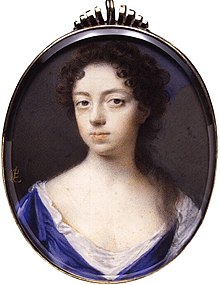The Critick and the Writer of Fables
Anne Kingsmill Finch 1661 – 1720 (Westminster)
Weary, at last, of the Pindarick way,
Thro' which advent'rously the Muse wou'd stray;
To Fable I descend with soft Delight,
Pleas'd to Translate, or easily Endite:
Whilst aery Fictions hastily repair
To fill my Page, and rid my Thoughts of Care,
As they to Birds and Beasts new Gifts impart,
And Teach, as Poets shou'd, whilst they Divert.
But here, the Critick bids me check this Vein.
Fable, he crys, tho' grown th' affected Strain,
But dies, as it was born, without Regard or Pain.
Whilst of his Aim the lazy Trifler fails,
Who seeks to purchase Fame by childish Tales.
Then, let my Verse, once more attempt the Skies,
The easily persuaded Poet cries,
Since meaner Works you Men of Taste despise.
The Walls of Troy shall be our loftier Stage,
Our mighty Theme the fierce Achilles Rage.
The Strength of Hector, and Ulysses Arts
Shall boast such Language, to adorn their Parts,
As neither Hobbes, nor Chapman cou'd bestow,
Or did from Congreve, or from Dryden flow.
Amidst her Towers, the dedicated Horse
Shall be receiv'd, big with destructive Force;
Till Men shall say, when Flames have brought her down.
" Troy is no more, and Ilium was a Town.
Is this the way to please the Men of Taste,
The Interrupter cries, this old Bombast?
I'm sick of Troy, and in as great a Fright,
When some dull Pedant wou'd her Wars recite,
As was soft Paris, when compell'd to Fight.
To Shades and Springs shall we awhile repair,
The Muse demands, and in that milder Air
Describe some gentle Swain's unhappy Smart
Whose folded Arms still press upon his Heart,
And deeper drive the too far enter'd Dart?
Whilst Phillis with a careless pleasure reigns
The Joy, the Grief, the Envy of the Plains;
Heightens the Beauty of the verdant Woods,
And softens all the Murmurs of the Floods.
Oh! stun me not with these insipid Dreams,
Th' Eternal Hush, the Lullaby of Streams.
Which still, he cries, their even Measures keep,
Till both the Writers, and the Readers sleep.
But urge thy Pen, if thou wouldst move our Thoughts,
To shew us private, or the publick Faults.
Display the Times, High-Church or Low provoke;
We'll praise the Weapon, as we like the Stroke,
And warmly sympathizing with the Spite
Apply to Thousands, what of One you write.
Then, must that single Stream the Town supply,
The harmless Fable-writer do's reply,
And all the Rest of Helicon be dry ?
And when so many choice Productions swarm,
Must only Satire keep your Fancies warm?
Whilst even there, you praise with such Reserve,
As if you'd in the midst of Plenty starve,
Tho' ne'er so liberally we Authors carve.
Happy the Men, whom we divert with Ease,
Whom Opera's and Panegyricks please.
Font size:
Submitted on May 13, 2011
Modified on March 05, 2023
- 2:24 min read
- 104 Views
Quick analysis:
| Scheme | AABBCCDX EEEFF GGGHHIIJJKKLL XXBBB CCDDDMMXX NNOOXXPPBB QQQRR XSS TT |
|---|---|
| Closest metre | Iambic pentameter |
| Characters | 2,641 |
| Words | 467 |
| Stanzas | 9 |
| Stanza Lengths | 8, 5, 13, 5, 9, 10, 5, 3, 2 |
Translation
Find a translation for this poem in other languages:
Select another language:
- - Select -
- 简体中文 (Chinese - Simplified)
- 繁體中文 (Chinese - Traditional)
- Español (Spanish)
- Esperanto (Esperanto)
- 日本語 (Japanese)
- Português (Portuguese)
- Deutsch (German)
- العربية (Arabic)
- Français (French)
- Русский (Russian)
- ಕನ್ನಡ (Kannada)
- 한국어 (Korean)
- עברית (Hebrew)
- Gaeilge (Irish)
- Українська (Ukrainian)
- اردو (Urdu)
- Magyar (Hungarian)
- मानक हिन्दी (Hindi)
- Indonesia (Indonesian)
- Italiano (Italian)
- தமிழ் (Tamil)
- Türkçe (Turkish)
- తెలుగు (Telugu)
- ภาษาไทย (Thai)
- Tiếng Việt (Vietnamese)
- Čeština (Czech)
- Polski (Polish)
- Bahasa Indonesia (Indonesian)
- Românește (Romanian)
- Nederlands (Dutch)
- Ελληνικά (Greek)
- Latinum (Latin)
- Svenska (Swedish)
- Dansk (Danish)
- Suomi (Finnish)
- فارسی (Persian)
- ייִדיש (Yiddish)
- հայերեն (Armenian)
- Norsk (Norwegian)
- English (English)
Citation
Use the citation below to add this poem to your bibliography:
Style:MLAChicagoAPA
"The Critick and the Writer of Fables" Poetry.com. STANDS4 LLC, 2024. Web. 18 Apr. 2024. <https://www.poetry.com/poem/3287/the-critick-and-the-writer-of-fables>.



Discuss the poem The Critick and the Writer of Fables with the community...
Report Comment
We're doing our best to make sure our content is useful, accurate and safe.
If by any chance you spot an inappropriate comment while navigating through our website please use this form to let us know, and we'll take care of it shortly.
Attachment
You need to be logged in to favorite.
Log In